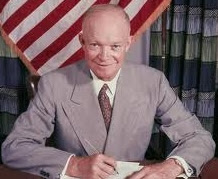The question was this: How did Lincoln Republicans of the
1860s morph into today’s Obama Democrats? My friend Michael Birkner's answer is
here. Michael is a history professor at Gettysburg College specializing in 20th
century history. I asked the same question of David M. Kennedy, a Stanford
University historian who the Pulitzer Prize for his book on FDR's leadership
during the Great Depression and World War II. His answer is here.
 |
| Birkner argues that FDR was 'weak on civil rights.' |
“David Kennedy’s comment on how the party of Lincoln morphed over time into the party of Obama contains an equal amount of insight and surprisingly unbalanced analysis.
“Kennedy is right to say that the Democratic Party, ‘anchored for a century in first the slave and then the Jim Crow South,’ was hardly the party of civil rights for African Americans in the aftermath of the Civil War. However, when he cites the ‘brave leadership’ of President Franklin Roosevelt on the issue of black civil rights, I have to disagree with his emphasis.
“Roosevelt was a great president – the greatest 20th century president, in my estimation – but he was weak on civil rights, justifying his refusal even to support an anti-lynching law on the grounds that to do so would jeopardize his ability to pass other worthy legislation. Roosevelt’s Executive Order 8802, highlighted by Kennedy, was a laudable act, but it occurred not out of courage but its opposite. FDR had declined to support equal rights in the workplace. By early 1941 he feared being embarrassed by a march on Washington led by A. Philip Randolph; consequently he issued the order to head off the march, not because he felt it morally right to do so.
 |
| Don't overlook Ike's record on civil rights, Birkner says. |
“I don’t mean to turn Kennedy’s argument upside down, especially as the Democratic Party – two-faced on civil rights for so long – eventually became the party of black civil rights, as Republicans moved in a different direction beginning in the 1960s.
“I discussed this subject in my original blog posting. The point here is that the party of Lincoln remained at least in part the party of civil rights until Lyndon Johnson introduced his Civil Rights measures in 1964 and 1965. Many northern Republicans backed those bills, but hard-core conservatives like Barry Goldwater opposed them.
“Meanwhile, southern Democrats, rebelling against LBJ’s move leftward on civil rights, began to abandon the party, the first steps in the Old Confederacy’s transformation into a Republican bastion. The rise of the Hispanic vote throws a new wrinkle into the story line, and it will be interesting to see how the party of Lincoln responds to the demographic realities of the 21st century.”
No comments:
Post a Comment